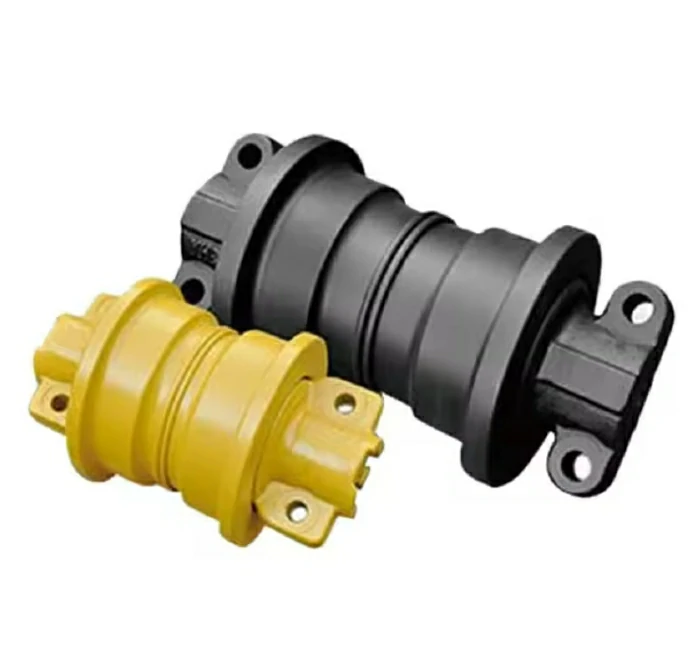
In the heavy equipment industry, more especially with regard to construction and mining equipment, knowing the functions of the different undercarriage parts is necessary. The track rollers and the carrier rollers are two of the most important elements. One of the main differences between these two components is that while they look similar and are necessary for the vehicles to run smoothly, they are used for different purposes. The paper is giving the readers a detailed account of the dissimilarity between track rollers and carrier rollers so that they can select a suitable spare part for their vehicles whether the buyers are new owners or have operated the machines for some time.
What is a Track Roller?
Track rollers, often referred to as bottom rollers, are mounted underneath the undercarriage of tracked equipment. Their primary function is to carry the weight of the machinery and ensure continuous contact between the track and the ground. These rollers are responsible for supporting the equipment’s weight as it moves, distributing it evenly along the track chain to minimize wear and improve traction.
What is a Carrier Roller?
In contrast, carrier rollers, also known as top rollers, are located above the track frame. Their job is to support the top section of the track chain, preventing it from sagging and ensuring proper alignment as the track cycles around the undercarriage system. Though smaller and fewer in number than track rollers, carrier rollers are essential for reducing wear and maintaining track tension and alignment over time.
Key Differences Between Track Rollers and Carrier Rollers
- Position and Placement:
- Track rollers are positioned at the bottom of the machine, bearing the load.
- Carrier rollers are mounted above the track to guide and support the upper part of the chain.
- Functionality:
- Track rollers provide ground support and stability.
- Carrier rollers prevent the track from sagging and maintain its path.
- Size and Load-Bearing Capacity:
- Track rollers are generally larger and designed to handle much greater loads.
- Carrier rollers are smaller, as they do not directly bear the machine’s weight.
- Wear and Maintenance:
- Due to constant contact with the ground, track rollers wear out faster.
- Carrier rollers typically have a longer lifespan but still require regular inspection and lubrication.
Importance of Choosing a Reliable Carrier Roller Manufacturer
Choosing a reputable carrier roller manufacturer is vital for ensuring performance, longevity, and cost-effectiveness. High-quality carrier rollers contribute to the smooth operation of tracked machinery, prevent costly downtime, and extend the lifespan of the entire undercarriage system.
JULI Machinery is a well-established carrier roller manufacturer that provides durable and precisely engineered rollers for a wide range of applications. Their products are designed to meet OEM specifications and exceed industry expectations for reliability and efficiency.
What Makes a Good Carrier Roller?
When choosing a carrier roller, consider the following:
- Material Quality: High-grade steel and advanced heat treatment techniques extend roller lifespan.
- Precision Engineering: Accurate dimensions ensure compatibility with the machine.
- Sealing System: Effective seals prevent dirt and water ingress, which can lead to early failure.
- Load Capacity: Ensure the roller can handle the operating conditions and machine weight.
Buying from a Trusted Carrier Roller Factory
Purchasing directly from a carrier roller factory like JULI Machinery ensures quality control, competitive pricing, and access to customization options. As a leading carrier roller factory, JULI Machinery offers excellent after-sales service and technical support to assist customers in selecting the right components for their machinery.
Whether you are in construction, agriculture, mining, or forestry, sourcing from a reliable carrier roller factory can significantly impact your equipment’s efficiency and operational cost.
Final Thoughts
Understanding the difference between track rollers and carrier rollers is crucial for anyone dealing with heavy machinery. While both components play essential roles in the undercarriage system, they serve very different purposes. Proper maintenance and choosing quality components from a reputable carrier roller manufacturer like JULI Machinery can make a subs